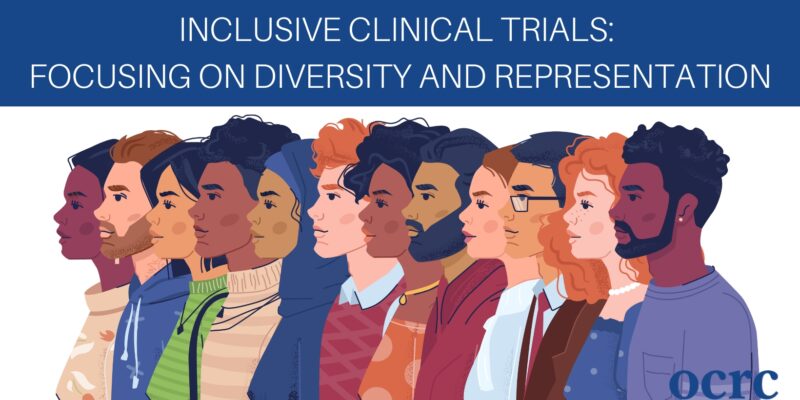
Clinical trials provide important information about the safety and efficacy of new drugs and treatments. Volunteers who willingly participate in inclusive clinical trials make it possible to confirm the safety of certain interventions and determine which side effects they might cause.
However, a bias toward including only certain groups in clinical trials can cause studies to be incomplete. For instance, in the past, there was a time when heart disease was considered a “man’s disease” that didn’t affect women.
Today, of course, the Centers for Disease Control reports that heart disease is the number one cause of deathin women, just as it is for men. Up until the mid-1980s, women weren’t included in clinical trials related to heart disease.
Medical science is an ever-evolving field. Modern researchers understand the value of diversity and inclusion in clinical trials. The information gained by inclusion benefits not just more demographics but humanity as a whole.
Any two people can experience the same disease or the same treatment differently. Many elements can influence the likelihood of developing a disease and an individual’s response to treatment. Some of those factors include:
Historically, clinical trials focused almost exclusively on white males. This created gaps in information that influenced healthcare decision-makers. There are many other ways to exclude certain groups, though. For instance, clinical trials on high blood pressure that exclude people with certain comorbidities may also exclude older adults.
People over 65 are more likely to have comorbidities, but they are also more likely to have high blood pressure. Failing to focus on this age group in clinical trials could result in treatments that won’t benefit those who need them most. Thus, inclusive clinical trials have a better chance of improving public health.
One major reason for this is that broader results provide more information about a treatment’s potential. Focusing on a narrow demographic may produce positive results, but that doesn’t mean they are accurate for use in the broader population. The findings may consist of less effective medications and treatments.
Researchers face many obstacles to recruiting more diverse volunteers for clinical trials. Many factors contribute to a lack of diversity, beginning with unconscious or conscious bias from healthcare professionals. The way providers interact with trial participants can affect the quality of trial results as well. Even language barriers can be an issue.
Distrust from some groups is another obstacle due to events such as the horrific 1932 “Tuskegee experiment” conducted by the U.S. Public Health Service. The “scientific study” recruited and deceived 600 African American men, allowing many of them to suffer and die from syphilis in order to learn more about the disease.
The shameful Tuskegee experiment and similar incidences created an environment of distrust in the scientific community. This lack of trust has discouraged many members of minority groups from volunteering for clinical trials or engaging with healthcare settings in general.
On the one hand, this represents a setback to science. On the other hand, it has also inhibited the ability to find effective treatments for diseases that disproportionately disenfranchise demographics.
Overcoming these obstacles isn’t easy, but many medical researchers are making an effort to rebuild trust and increase awareness of the need for diversity. A strong promotion of ethics, greater transparency about potential risks, and more supervision of investigators is a start.
More efforts are also being made to build trust during the trial recruitment process. Volunteers may be offered incentives such as paying for transportation and other costs related to participation. Some research centers provide amenities that make the trial experience more comfortable for participants.
Clinical trials play an exciting and valuable role in medical care. The volunteerism of members from diverse demographics is vital for the advancement of medicine for all people. Representation matters on all levels, including medical research.
Participating in a clinical trial may directly benefit someone you care about. It could also lead to a cure for a disease that disproportionately affects a specific group of people. Contact us today to learn more about participating in a clinical trial in our state-of-the-art research facility.
